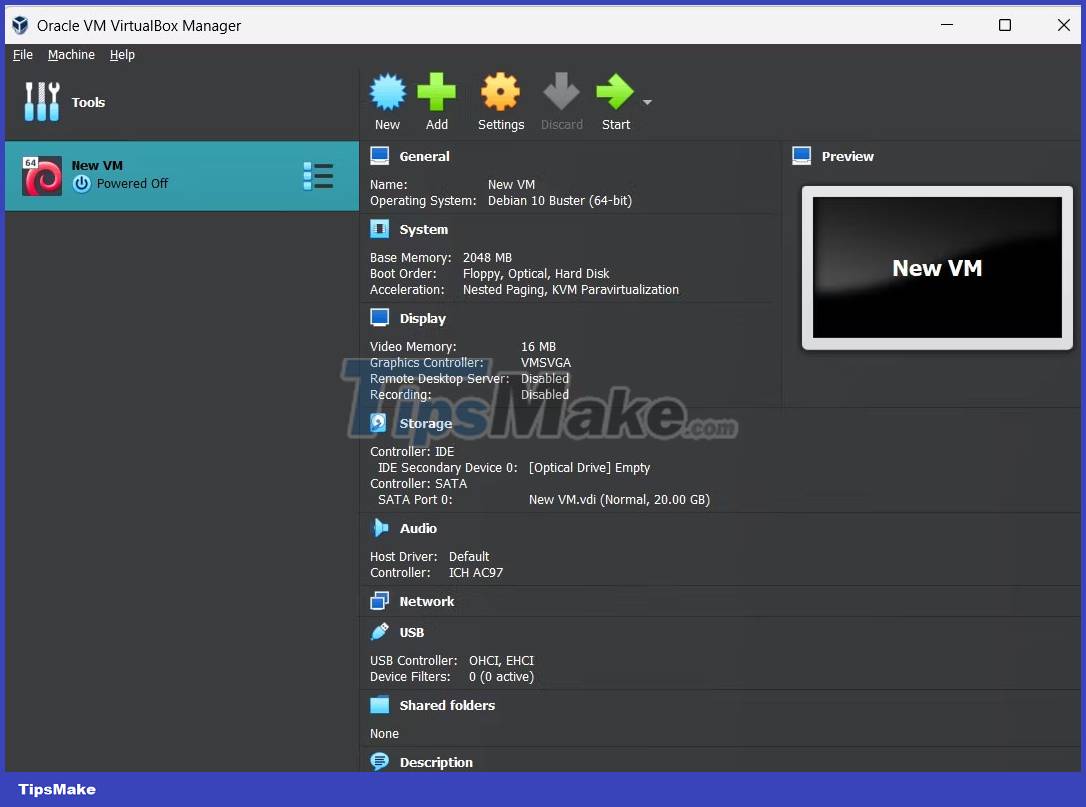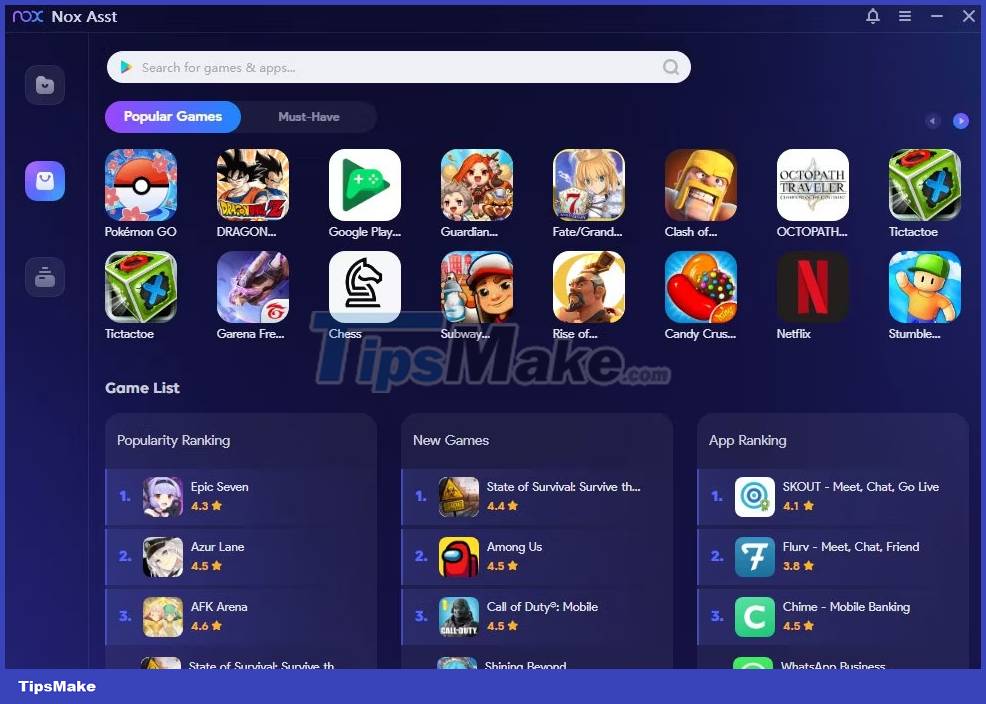5 best virtual machines for Windows 11 PCs
Fortunately, virtual machines can help you achieve all of this and more. They provide a safe environment for testing other operating systems and their proprietary applications. They require little system resources, allowing you to run multiple virtual machines without overloading your PC.
1. VirtualBox

Developed by Oracle Corporation, VirtualBox is arguably the most popular virtual machine among Windows users. It is mainly used to run different versions of the Linux operating system. However, VirtualBox can also run Windows and limited versions of macOS.
The appeal of VirtualBox lies in its high performance and many features. Moreover, it is open source with growing support for more operating systems. This software allows you to run multiple virtual machines concurrently and automatically balance system resources between them. It provides an isolated environment to test for security vulnerabilities and other high-risk software without affecting the host operating system. VirtualBox provides several bridges that help virtual machines use resources from the host operating system.

Additionally, you can allocate RAM and ROM resources to each virtual machine and even set how many CPU cores it can use. Furthermore, VirtualBox can take a snapshot of any VM, allowing users to revert to a saved state when they choose.
One cool way to use VirtualBox is to run a guest version of the host operating system. This improves performance, especially when resizing the virtual machine's window. Also, VirtualBox works well with multiple monitors, and it's common practice to dedicate one monitor to the VM.
2. Bluestacks
Bluestacks App Player lets you run Android apps and games on Windows and macOS devices. This software emulates the Android operating system and even specific Android devices. Furthermore, it allows you to run multiple virtual machine instances concurrently.
Bluestacks is specially designed to run mobile games. Finally, it offers preset game controls that map to your keyboard, mouse, and any connected gamepads. You can customize and share these controls for shooters, MOBAs, RPGs, and strategy games.
Besides the game control features, Bluestacks does a great job of emulating the popular Android control features on Windows PCs. It offers one-click shake, swipe, screen zoom and even accelerometer.
Few virtual machines can perform as well as Bluestacks. It takes almost no RAM and makes efficient use of the GPU for graphics-intensive applications. In fact, Bluestacks allows you to set the maximum amount of RAM it can use. In addition, Bluestacks also allows you to choose the graphical backend it uses for rendering.
Bluestacks' file system is reminiscent of any Android device and is separate from the file system on your PC. However, it does provide a shared folder to move files between your PC and the virtual machine easily. That way, you can make sure your VM files aren't overwritten.
This virtual machine is free to use and is considered the best Android emulator due to its flexibility and ease of use. The latest version, Bluestacks 10, is a cloud-based hybrid that allows low-end devices to run Android apps without worrying about performance issues.
3. NoxPlayer

This Android app emulator is a direct competitor of Bluestacks, offering many of the same features. However, it provides better support for many cases. In addition, NoxPlayer can run any mobile application, from social networking to performance-intensive games.
NoxPlayer can only run on 2 gigabytes of RAM and the same amount of storage. It supports multiple versions of the Android operating system, from 4.4.2 to Android 9. Although not required, it is best to have a dedicated graphics card when running this software.
This emulator supports many gamepads and other input devices. The multi-instance system is so sophisticated that it can assign a dedicated controller to each instance, avoiding input conflicts. This means you can play multiple games at the same time without switching tabs or devices.
One of the top features that NoxPlayer offers is scripted actions. This tool allows you to bind multiple keypresses, swipes, shakes, and any other mobile control into a single button. As a result, you can perform multiple actions with a single click or keystroke.
NoxPlayer is free to use and GDPR compliant for privacy and security. It also has a built-in screen recorder that can record screen events without affecting performance.
4. QEMU

Quick Emulator, or QEMU, is a free and open source emulator for running full programs and operating systems on a virtual machine. One of its standout features is the ability to run operating systems at near-native speeds using KVM (Kernel-based Virtual Machine).
Unlike VirtualBox which can only run operating systems, QEMU is lighter and can run individual programs compiled for a target on other architectures. Furthermore, it can emulate server hardware, allowing Xen to run VMs and hide details from QEMU.
A 500 GB virtual hard drive (VHD) on a virtual machine takes up only a few megabytes of storage space. One of the benefits of this system is that the user can easily revert to a previous working state if the VM becomes unusable.
Another benefit of using QEMU is that it doesn't have to detect any graphics output devices on the server. Instead, it uses a built-in virtual network server and automatically outputs any active monitors. In addition, it does not require administrative rights unless running critical kernel modules.
QEMU uses a proprietary dynamic binary compiler to convert instructions from the source architecture to work on the target architecture. This allows it to run virtual machines from other software, including VirtualBox's Virtual Disk Image.
This software can emulate almost all 32-bit and 64-bit operating systems and programs. It also offers great support for macOS apps but struggles to emulate the entire operating system.
5. Hyper-DRAW
Hyper-V is a native hypervisor from Microsoft that allows you to run multiple virtual machines on your Windows PC. It allows you to create virtual hard drives, virtual USBs, and other virtual devices and attach them to virtual machines, just like actual physical devices.
Hyper-V allows you to run software that is only compatible with older versions of Windows or even non-Windows operating systems. You can even import and export virtual machines into other Hyper-V environments like Microsoft Azure.
This VM environment is integrated into all Windows 11 devices except for the Home edition of the operating system. Moreover, you only need a few steps to enable Hyper-V. Additionally, as listed on Microsoft Learn, Hyper-V can run several versions of the Windows operating system, as well as many free Linux and BSD distributions.
One of the advantages of using Hyper-V is the ability to use virtual switches to communicate between multiple virtual machines. These switches examine data packets before sending them to the intended recipient.
In addition, Hyper-V creates a secure server to host multiple virtual machines that you can use for testing and application development. It is highly scalable and since it uses the underlying hardware directly, it is highly performant. In fact, you only need 4 gigabytes of RAM to run a fully featured virtual machine.